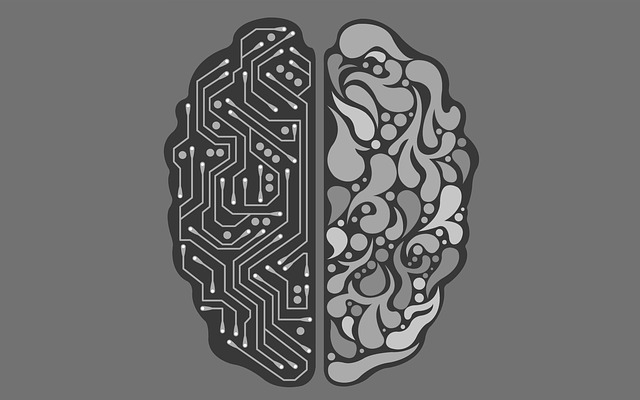
Marketing, BigData and artificial intelligence
Regardless their size or market share, companies have a common goal: knowing their consumers, as individuals. This is not arbitrary, but one of many strategies used to provide our consumers with easy access to our products/services.
Today, more than ever before, we can know a customer’s steps, likes, needs, purchase and consumption frequency, among others. There is a myriad data scattered in the web, CRM, and loyalty programs. The problem lies in the fact that people do not often resort to data, either due to ignorance or lack of tools to interpret them. Consequently, they remain as an enormous lump of information which is good for nothing. Information is crucial but knowing how to deal with it is of utmost importance for it reveals how to adapt our product to market trends, and our consumers’ needs.

BigData Marketing
Massive amounts of information are daily generated, a trend which apparently has no way back. Big Data is intertwined in our daily lives, whether we are aware of it or not: our mobile apps, the paths and marks we leave in the Internet, even what we do with “points” or “miles” in supermarkets and stores. All of them depict our personality traits: brands (and some platforms too) can tell what we surf the net for, where we have been (glocalization), what we usually buy at the supermarket and how frequently. There are no secrets anymore. Everything is known, and we can cross information in all kinds of manners. Out of these data analysis, we have the information required to cater for current needs.
The marketing insights, resulting from analytics solutions, are a new approach to data exploration which improve marketers and companies ‘efficiency in terms of making sound decisions making.
During the last few years, digital marketing development has resorted to this information to let companies know their consumers’ or potential customers’ preferences. By means of any analytics software, from any device, at any time, anyone can see where a consumer is in the marketing funnel and make the right intervention.

BigData Marketing refers to how massive data amounts are processed to analyse consumers’ behaviour. Next, they are lured into our products, and become our customers. Finally, they will “adore” our brands (recommend them) and our sales will increase.
If we were asked about Big Data’s role in marketing, we would definitely say CRUCIAL. This is why:
- We can customize our product/service based on what we know of our consumers; plan the appropriate strategy according to their purchase decision, moreover, choose the best means of communication to reach our target. In other words, this is a macro/micro market segmentation carried out to know who the target market is, choose and design the product/service, how and when contact consumers
- Strategic and proper data management instantly shows the results of marketing measures which are currently being performed (both on-line and off-line). As a result, a strategic direction can rapidly be changed, if the case so requires.
- Information helps us to keep our clients’ loyalty and bring back former ones.
- We can always adapt to our consumers’ needs so that their experience with us is what differentiates us from the rest. Ultimately, it is all about hands-on experience.
- We can learn what our competitors are up to, and act accordingly, among others.
Marketing, and Artificial Intelligence
All the above boils down to machine learning. Nowadays, AI is not about Science Fiction or Hollywood 80’s movies such as “Back to the Future”, where everything seemed far from real life, and almost improbable.

Today, AI is almost always around us, in our daily activities. Just think of smartphones and their assistants, for instance Apple’s Siri, or the number of chatbots swarming the web and which are familiar to us.
Predictive analysis is one of the variants on artificial Intelligence which is particularly relevant to Marketing. It explores patterns out of the data companies have gathered from their customers. Usually, machine learning processes predictive analysis: a way to look backwards to understand the future, aiming at customers’ experience improvement.
For instance, Facebook and Google use machine learning and artificial intelligence to spot which people are prone to do what we wish them to do, from analysing users’ information such as interests, demography, among others. Then, they can tell what the best target for a brand is, to offer an experience which will meet their expectations. The experience should be the one seeked from ZMOT (Zero Moment Of Truth), meaning from the very beginning consumers start searching information about our product or service.
Programmatic advertising in the Internet, which is currently fashionable, is fed with AI. It is a completely new paradigm that brands should consider if they want to reach their consumers to achieve higher conversion levels.
Undoubtedly, artificial intelligence and BigData are useful in Marketing to streamline strategies at several levels: gather, analyse and apply data to work out the best insights for companies and consumers. It is a solution where everyone benefits; otherwise, if consumers do not win, companies and brands do not win either.
We are surrounded by data and intelligent machines which do the work for us, making life easier. There are several companies which harness both areas with marketing strategies to achieve their goals by making the best of them.
It is not a question of replacing people for intelligent machines but adapting to our new reality. Technology is a complement to our skills and increases our capabilities, making the best version of ourselves.
Mauricio Fernández Lugo @maurilugo
Marketing & Comunication dep. Responsible
